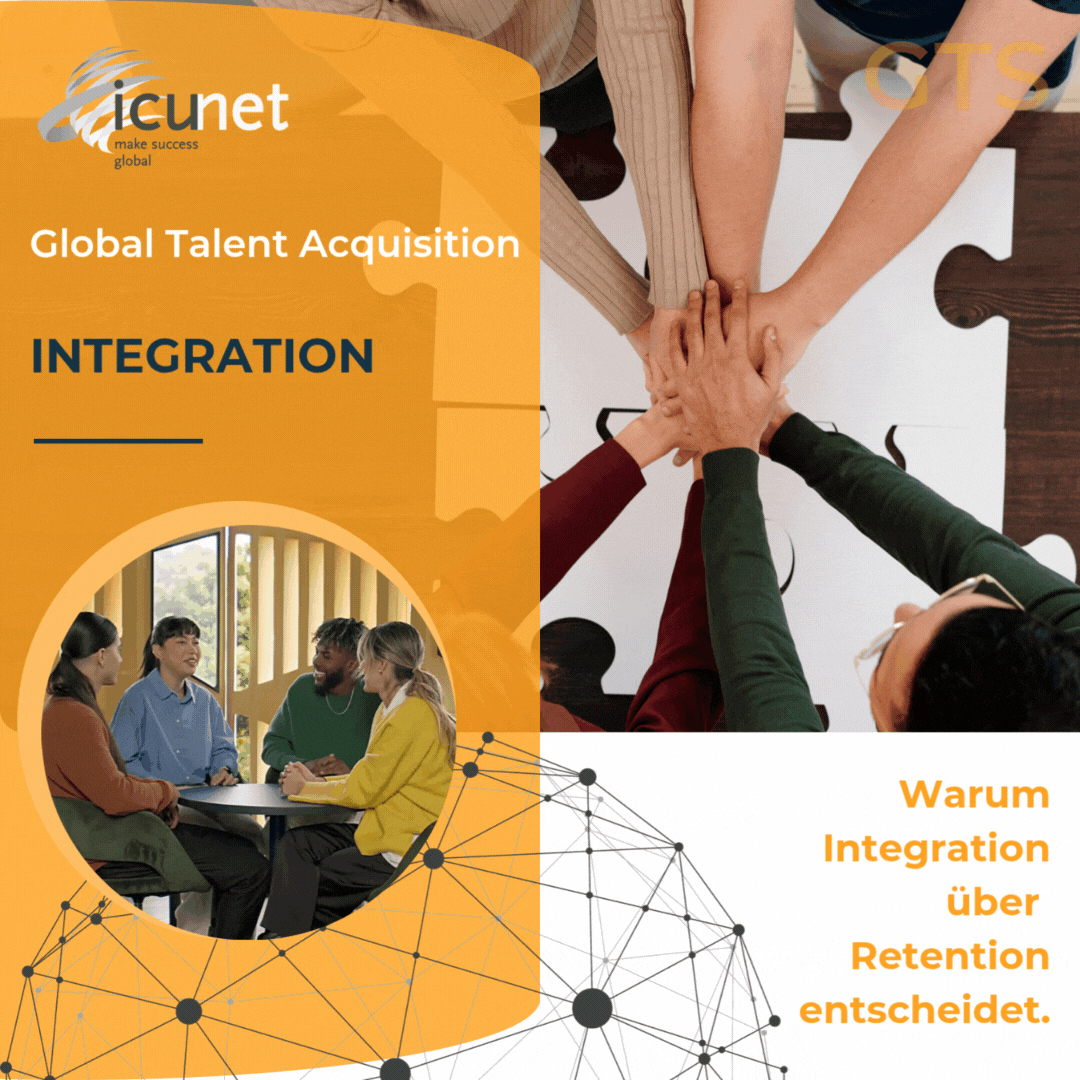New job, new city – check
But lunchtime in the cafeteria? Silent. Your partner at home? Alone. Your child? Still without a place in daycare.
Welcome to Germany – or maybe not? Belonging doesn't happen by itself.
Integration can only succeed if both sides actively participate – the company as well as the international talent themselves.
This often determines whether talents stay or are already thinking about leaving.
Integration means giving them and their families the chance to gain a foothold in society, in the team, and in the company.
Particularly underestimated – but crucial: the role of partners.
The fear of a gap in their resume is one of the most common reasons why secondments fail.
That's why ICUnet.Group thinks of integration as a family project – with partner support, orientation, and cultural coaching that strengthens self-efficacy.
For example, one of our micro-learning courses, “Welcome to Germany,” provides support in precisely this area:
With short, practical modules on friendship, communication, everyday life, and work culture in Germany—low-threshold, interactive, effective.
And what does it take on the part of companies?
Subtle integration. Often, it's not the big programs, but the small impulses that help shape culture: an international potluck, international holidays on the team calendar, or posters.
We call these “nudges” – tailored, subtle interventions that have a big impact. They often have a more lasting effect than traditional training. They promote a corporate culture in which diversity is not only accepted but lived – and in which international talent is not only welcome but also has real opportunities to develop and advance.
How does integration work in your company? What experiences have you had – whether as a talent, HR professional, or manager?
If you would like to learn more about this topic, especially learning nuggets to try out: “Celebrating our mistakes – with psychological safety and feedback for success,” then read on here.

